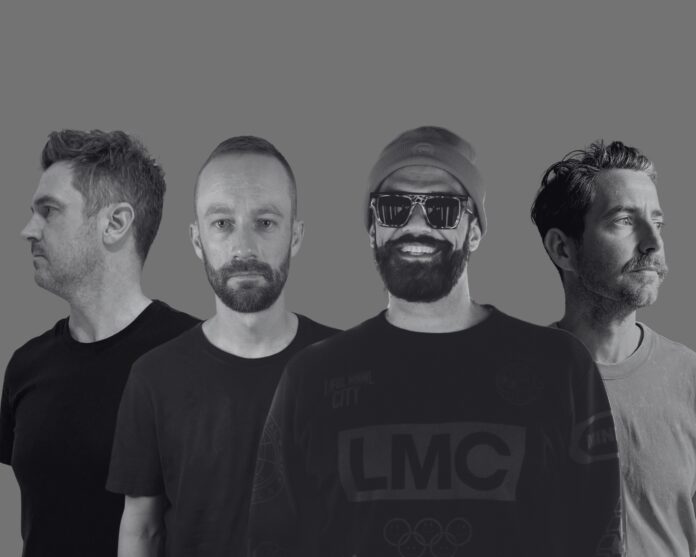As Attack on Titan quickly approaches its climax, it seems that the series is likely to go down as one of the greatest anime of all time. With each new episode, fans grow more excited for the conclusion and fall deeper in love with the series. Attack on Titan will likely become a series that defines the anime genre like Fullmetal Alchemist Brotherhood. Attack on Titan and Fullmetal Alchemist Brotherhood share more in common than just popularity and high quality though.
Both anime have heavily political stories. They use real historical events and cultures as inspiration for major plot points and characters. Fullmetal Alchemist Brotherhood has the Ishvalans, who are based on a mix of Middle Eastern cultures and religions. This ethnic group was nearly wiped out during the Ishval Civil War and continued to face persecution throughout the series. Attack on Titan has the Eldians, a group heavily influenced by European Jews pre-World War II. Like the Ishvalans, the Eldians were placed in segregated ghettos and heavily persecuted. Although both series are inspired by real examples of bigotry and discrimination, Fullmetal Alchemist Brotherhood ultimately handled these topics more sensitively and appropriately than Attack on Titan.
Depictions of Persecuted People
Fullmetal Alchemist Brotherhood and Attack on Titan both place their persecuted ethnic groups in a sympathetic light. The genocide of the Ishvalans is always depicted as horrific and evil. The same framing is applied to the persecution of the Eldians. Their segregation and lack of human rights are always framed as an injustice. So why is it that Attack of Titan is routinely accused of anti-Semitism while Fullmetal Alchemist Brotherhood avoids similar criticism? The answer is in how the two anime represent their ethnic groups in different ways.
Fullmetal Alchemist Brotherhood takes great care to not show the Ishvalan people in an offensive manner. The Ishvalan people do not reinforce any offensive stereotypes or misconceptions of people from the Middle East. They are given the same level of human dignity as any other ethnic group in the series. The Ishvalans have their own culture and traditions, but these aspects are not framed as barbaric or primitive.
Attack on Titan, on the other hand, sadly reinforces a lot of the anti-Semitic opinions that have harmed Jewish people in the past. All Eldians have the ability to transform into monstrous Titans. These Titans often have grotesque features like large noses, beady eyes, and sharp teeth. The design of these Titans matches a lot of anti-Sematic imagery that depicted Jewish people as evil monsters. In addition to this, Titans are cannibalistic. Under the right conditions, when an Eldian transforms and eats another person, they can gain increased power. Once again, this depiction sadly matches up with an anti-Semitic conspiracy theory called blood libel. This conspiracy theory falsely suggests that Jewish people kidnap non-Jewish people and perform cannibalistic rituals.
Justified Oppression
Both anime do their best to show the heinous nature of their ethnic group's oppression. The audience witnesses the trauma that the Ishval Civil War left on Scar and how the terrible things he saw changed who he was. Attack on Titan shows how the constant harassment of the Eldians ruined the lives of characters like Reiner and Grisha. Although sympathy is expressed for both groups, the oppression of the Eldians is framed in a problematic way.
Attack on Titan has revealed that the Eldians at one point ruled most of the world with a brutal empire. The Eldian Empire forced people into slavery and savaged most other nations for thousands of years. The Marleyans justified their hate and oppression of the Eldians by pointing to the centuries of bloodshed caused by them. They also continue to persecute the Eldians because they fear their power. This power has the potential to destroy the entire world. The Marley government is even secretly controlled by an Eldian family who ensured that their own people stay oppressed. The narrative of Attack on Titan gives the Marleyian government a level of justification for their bigotry by making their fears legitimate. All of the bigoted ideas that the Marleyan government had about Eldians have been proven true. Eren, an Eldian, has resurrected the Eldian Empire and plans to destroy the world.
These ideas once again align with prevalent anti-Semitic conspiracy theories that claim that Jewish people secretly control the world. These theories also baselessly accuse Jewish people of starting all of the world's problems and undermining other nations as revenge for the Holocaust. The issue with Attack on Titan's depiction is that it takes a real-world tragedy, and then frames it as the fault of the victims. Fullmetal Alchemist Brotherhood avoids these problems. The Ishvalans did not instigate the civil war, and they pose no threat to the Amestris government. Any fear and bigotry directed at the Ishvalans are completely unfounded and unjustified. Fullmetal Alchemist Brotherhood is able to take inspiration from real cultures and tragedies without feeding into existing offensive stereotypes. The narrative understands the significance of these historical events and treats them with the sensitivity that they deserve.
About The Author

